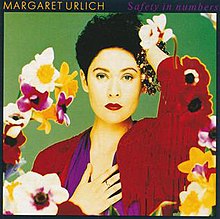
Beautiful Collision is the second solo album by New Zealand artist Bic Runga, released on 1 July 2002 in New Zealand, 15 July 2002 in Australia, and 5 November 2002 in the United States.

Riverhead is the debut studio album of New Zealand band Goldenhorse, released in October 2002. Three versions were released of this album; the original in 2002, a limited edition 2-CD version in 2003, and a new edition released in 2004. The 2004 version was released to celebrate a year on the album chart and achieving double platinum sales.
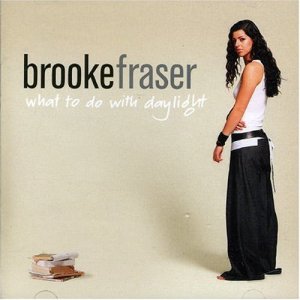
What to Do with Daylight is the debut album by New Zealand singer/songwriter, Brooke Fraser released in 2004. What to Do with Daylight was the top New Zealand album for 2004, and went seven times Platinum.

The discography of American heavy metal band Metallica includes 11 studio albums, eight live albums, three extended plays, 49 singles, 10 video albums, 43 music videos, one soundtrack album, one collaboration album and three box sets. They are a San Francisco-based metal band formed in 1981 by James Hetfield and Lars Ulrich (drums). After several bassist and lead guitarist changes, the band settled on Cliff Burton and Kirk Hammett, respectively. Metallica started playing locally, releasing their first widely circulated demo, No Life 'til Leather, in 1982. The demo caught the attention of Johny Zazula, who signed Metallica to Megaforce Records. The band released Kill 'Em All in 1983, and the following year they released Ride the Lightning. After Ride the Lightning was released, Metallica left Megaforce and signed to Elektra Records. In March 1986, the band released its third studio album, Master of Puppets, which was Metallica's first album to be certified gold by the Recording Industry Association of America (RIAA). While promoting the album, Burton was killed in a bus accident. Jason Newsted was hired as a replacement. The band's first release to feature Newsted was The $5.98 E.P. – Garage Days Re-Revisited, and then followed by ...And Justice for All in August 1988, which peaked at number six on the Billboard 200.
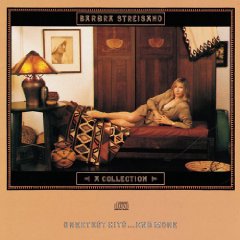
A Collection: Greatest Hits...and More is the fourth greatest hits album recorded by American vocalist Barbra Streisand. It was released on October 3, 1989 by Columbia Records. The compilation features ten songs from Streisand's career, dating from 1975 to 1988, plus two previously unreleased songs: "We're Not Makin' Love Anymore" was released as the album's lead single on September 14, 1989, and "Someone That I Used to Love" was distributed as the second and final one in 1989. Both singles charted on several record charts internationally.

Margaret Mary Urlich was a New Zealand singer who lived in Australia for most of her career.

Respect the Beat is the second studio album by New Zealand band Aishah and The Fan Club, released in 1989 by CBS Records as well as Epic Records in some territories. The album, produced by Mark S. Berry, reached No. 28 in New Zealand, where it was nominated for Album of the Year at the 1989 New Zealand Music Awards. Its success resulted in The Fan Club earning the International Recognition award at the 1990 Awards. However, Respect the Beat was the band's final album as lead singer Aishah decided to return to her native Malaysia, where the band was most successful, to pursue a solo career recording in the Malay language.

The Essential Barbra Streisand is the fifth greatest hits album by American singer Barbra Streisand, released on January 29, 2002, by Columbia Records. The compilation features 38 songs from Streisand's catalog, in addition to two previously unreleased tracks. It includes material from 26 of the singer's albums and was described as a collection of, mainly, her pop songs. A reissued version of the compilation was distributed by Columbia and Legacy Recordings in 2008 and includes a bonus disc featuring nine additional songs from Streisand's discography.

The Very Best of the Eagles is the fifth compilation album by the Eagles. It was originally released in Europe, Australia and New Zealand on July 11, 1994, by Elektra Records.

American pop singer and songwriter Jesse McCartney has released six studio albums, twenty four singles, two live albums, four EPs, and two DVDs.

Barbra Streisand's Greatest Hits Volume 2 is the second greatest hits album recorded by American vocalist Barbra Streisand. It was released on November 15, 1978 by Columbia Records. The album is a compilation consisting of ten commercially successful singles from the singer's releases in the 1970s, with a majority of them being cover songs. It also features a new version of "You Don't Bring Me Flowers", which was released as the collection's only single on October 7, 1978. Originating on Streisand's previous album, Songbird, the new rendition is a duet with Neil Diamond who had also recorded the song for his 1978 album of the same name. The idea for the duet originated from DJ Gary Guthrie who sold the idea to the record label for $5 million.

Chameleon Dreams is the second solo album by New Zealand-born singer-songwriter Margaret Urlich, which was released in September 1992. The first single from the album, "Boy in the Moon" (August), reached the top ten on the New Zealand singles chart. The album peaked at No. five in Australia and No 18 in New Zealand and achieved platinum status in both countries. Three other singles were issued from the album, "Human Race", "(I Don't Want to be) Second Best" and "Burnt Sienna" (July).

The discography of American singer and dancer Paula Abdul consists of three studio albums, one remix album, five compilation albums, eight video albums, sixteen singles, and seven other appearances. Having found success as a choreographer for artists such as Janet Jackson, Abdul launched her own music career with the release of her debut studio album Forever Your Girl (1988). The album topped the Billboard 200 chart, and to date holds the record for the longest climb to number one for an album. The project spawned a number of successful singles, and is one of only nine albums to have four singles top the Billboard Hot 100 chart. It went on to earn a seven-times platinum certification from the Recording Industry Association of America (RIAA).
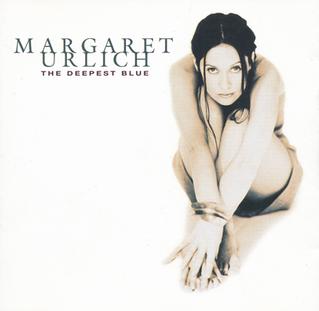
The Deepest Blue is the fourth solo album by Margaret Urlich, released in July 1995 through Columbia Records. In November 2010 the album was re-released in digital form on various online music retail websites, including iTunes in New Zealand and Australia.

"The Horses" is a song written by Rickie Lee Jones and Walter Becker. It was originally performed by Jones on her 1989 album, Flying Cowboys. While not released as a single, the original version did appear in the 1996 film Jerry Maguire and was also included on the film's soundtrack. The song was covered in 1990 by Daryl Braithwaite; his version reached No. 1 in Australia, and by 2022, it had been certified decuple platinum.

"Escaping" is the debut solo single of New Zealand singer Margaret Urlich. The song was released in September 1989 by CBS and charted at number one for three weeks in the New Zealand singles chart, later reaching number 17 in Australia. It is the opening track on Urlich's debut album, Safety in Numbers (1989), and also features on her 1994 live album Live.

American Teen is the debut studio album by American singer Khalid. It was released on March 3, 2017, by Right Hand Music Group and RCA Records. The album was supported by the Billboard Hot 100 top 20 singles "Location" and "Young Dumb & Broke"; as well as the third single "Saved".
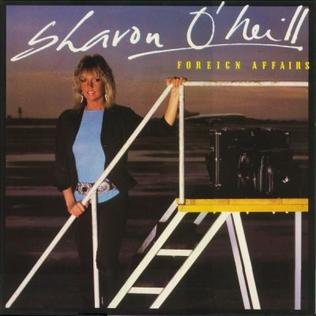
Foreign Affairs is the fourth studio album by New Zealand singer and songwriter Sharon O'Neill. It was O'Neill's final studio album release on CBS. The album was certified Gold in New Zealand.

As a solo artist, English singer Liam Payne (1993–2024) released one studio album, two extended plays (EPs), 14 singles, nine music videos, and one guest appearance. He was musically active from 2010 until his death in 2024.

Peking Man is the self-titled debut studio album by New Zealand new wave band Peking Man. Released in early July 1986 by CBS Records International, the album, produced by Bruce Lynch, had numerous successes in New Zealand. These included 8 award wins at the 1986 New Zealand Music Awards and a peak of No. 6 on the country's charts. It remains the band's only studio album as vocalist Margaret Urlich left the group to begin a solo career mere months after its release.
